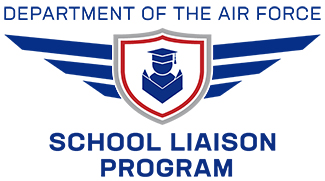
Dr. Venetia D Waters, MacDill Liaison
Welcome to MacDill! Your School Liaison (SL) is the central point of contact for commanders, community stakeholders, military-connected families, and educators on PreK-12 education related matters. The (SL) assists commanders and military-connected families in meeting the challenging demands of the military lifestyle by developing and maintaining partnerships between parents, installation leadership, local schools, Department of Defense Education Activity and International Schools and the community. Your School Liaison provides outreach advocacy, partnership initiatives, supporting any matter, or concern, impacting PreK-12 total-force students anywhere in the world. Call or email your School Liaison.
MILITARY INTERSTATE CHILDREN'S COMPACT COMMISSION (MIC3)
The Compact deals with the challenges of military children and their frequent relocations. It allows for uniform treatment as military children transfer between school districts in member states. Note: The Compact only applies to public schools and the Department of Defense schools.
Providing key details and information on how to successfully transition from one school to the other.
Full list of scholarship and grant opportunities for the 2023-2024 school year for a variety of opportunities.
Every Thursday until the end of the school year, "Meet your MFLC on Zoom" is available to all military members and their spouses with children attending school in Hillsborough County. This is an open invitation to join us for a one hour Zoom meeting every Thursday (during the school year) from 6:30pm - 7:30pm.
Dependent children of a member of the US Armed Forces may qualify for up to $7,000+ per child to attend K-12 private schools with a Step Up for Students Scholarship.
Attorneys can help families navigate SPECIAL EDUCATION legal issues for students whose educational performance is adversely impacted by their disabilities.
The School Liaison Program (SLP) and EFMP Family Support (EFMP-FS) offers Exceptional Student Education Assistance Processes.
CLICK HERE to find answers to questions about advocacy for special education needs for your child and legal support for EFMP families.
Top 5: Back-to-School Tips for EFMP Families
(View as a PDF)
- Request all documentation
- Military Children’s Interstate Compact
- IEP Review
- Transfers
- Transitions
1. Request all documentation
- The information you provide may be instrumental in your child receiving comparable services seamlessly; without that information, your child may experience a lapse in services.
- In the world of special education, there are lots of meetings, paperwork, and documentation to keep track of, whether enrichment, gifted, accelerated, special education or 504 services. Try to ask and keep copies of all records in an organized manner.
- Hand carrying school records is vital in a school move. Do not send any binder or record-keeping folders with your move, keep them to ensure you can access them in a timely manner and so they do not get lost. The receiving school may send a formal request for records to the sending school, and the documents you provide at the time of registration may be the only information the new school has to make informed placement decisions.
- Do not assume all documents or records are kept by the school and that all of them will be sent to the incoming school or grade.
- A new receiving school has a duty to take reasonable steps to promptly obtain the child’s records, including the IEP and supporting documents related to special education from the previous school.
2. Military Interstate Children's Compact
- PCS and back to school go hand and hand. The average military child will move 6 to 9 times during their school career, an average of 3 times more frequently than non-military families (Ruff & Kiem, 2014).
- Is an agreement amongst states that was created to assist military kids to experience seamless transfers between schools with consistency in transfers, enrollment, attendance, eligibility and graduation requirements.
- Receiving schools must initially honor student placement based upon enrollment in the previous educational program, comparable special education services, and waive prerequisites for placements. (among other rights)
- For graduations, schools shall accept exit exams from sending schools, course requirements may be waived for similar completed coursework, and the sending school shall ensure receipt of diploma if the student is ineligible to graduate from the receiving school.
- Although all states have signed on to a version, gaps in education transfers still exist.
3. IEP Review
- The IEP is the cornerstone of your child’s educational program, so it’s important that you have a clear understanding of it.
- An initial evaluation must be conducted within 60 days of receiving parental consent for the evaluation to determine if the child has a qualifying disability and to determine the educational needs of the child.
- The IEP team must meet at least annually to determine whether the goals for the child are being achieved and to review the IEP.
- Reevaluations must be conducted at least once every three years, unless the parent and the school agree that reevaluation is unnecessary, or earlier at the request of a school or parent.
- The IEP review or development is a collaborative process between the school and the parents, parents do not have an obligation to accept all or some of the content of a proposed IEP, any proposed changes or any refusals to provide certain accommodations or services.
4. Transfers
- For moves during the school year, IDEA clearly states the new district must provide comparable services until new evaluations or IEP is developed.
- For summer school moves, the state has the choice to adopt the existing IEP, develop a new one, or to re-evaluate the child.
- Calling the person in charge of registration, likely a counselor or registrar, several weeks prior to the move will give time to copy these documents. It will also give the counselor or registrar the opportunity to let you know what you need to do to withdraw your child from the school.
- Meeting your child’s principal or assistant principal, counselor, and teachers will go far to establish a personal connection. They may go further out of their way to ensure your child adjusts well.
- Before school starts, particularly Kindergarten and 6th grade, double-check if the new school or next grade level requires updated shots or other special accommodations, testing, or documentation that were not requested of the previous schools.
5. Transitions
- From the time a child is 16 years old or will turn 16 during the school year, the IEP must include appropriate measurable postsecondary goals based upon the student’s potential.
- The IEP shall also include the transition services needed to assist the child in reaching those goals.
- A special needs child can participate in IEP meetings, and be part of the IEP team at any age, but it may be particularly relevant when transitions are being discussed.
- Specific transition goals, special education, and related services designed to meet a child with special needs shall be those that prepare them for further education, employment, and/or independent living.
- Parents can request any training for themselves that they believe necessary to enforce and continue those independent living skills or educational goals at home.
Closing reminder – Check out the video library on DAF Family Vector or see your nearest legal assistance office to consult with an attorney for any issues your family may be facing.

PUBLIC SCHOOL INFORMATION
The School Liaison Program Manager, Dr. Venetia Waters, is available to help assist with all your questions with schools in Hillsborough, Hernando, Manatee, Pasco, Pinellas, and Polk Counties.
MILITARY CHILD EDUCATION PROGRAM
Ensures access to info and provides a communication link for families assigned to MacDill, with school-aged students, in grades kindergarten through high school.
- Navigating School Choice Options
- Accessing Educational Information and Resources
- Advocating for Educational Needs of Military Students
- Identifying and Eliminating Barriers to Academic Success
- Supporting Families and Students Through Transitions and Changes that Impact Military Child Education
CHILD CARE ASSISTANCE
Now military and DoD Civilian families can search for child and youth care options through a single website! Using militarychildcare.com you can find comprehensive information on child care programs worldwide conduct a customized search for the care you need, and submit a request for care at anytime from any location.
PARENTS: You will now be able to sign up in advance for fall, winter and spring breaks, plus all 10 weeks of summer camp through this service.
Need help setting up an account? Download our
self-help guide
SESAME STREET FOR MILITARY FAMILIES
Sesame Street offers an initiative for families looking for ways to cope when transitioning from military life back to civilian life.
Find resources for families transitioning out of the military at sesamestreet.org/veterans
SCHOOL RATINGS
Understanding Your Child’s School Rating
State Law – Florida’s A+ Plan, School Grades: School Grades are based on how well students have mastered the Sunshine State Standards – the skills Florida teachers determined our children must learn at each grade level – which are measured by the Florida Comprehensive Assessment Test (FCAT). Student scores are classified into five achievement levels, with 1 being the lowest and 5 being the highest. Schools earn points based on three things: how well students are doing, how much progress they are making (learning gains), and how much progress struggling students are making in reading and mathematics.
Federal Law – No Child Left Behind Act: requires each subgroup (all ethnic groups, students with disabilities, students learning English, and economically disadvantaged students) in schools, districts, and the state as a whole to make adequate yearly progress (AYP) in reading, mathematics, writing, and graduation rate. Schools that do not make enough progress for two years in a row are in need of improvement, and must provide alternatives to parents – such as transferring to another school or participating in a different program within the school. Schools that need improvement two years in a row (do not make AYP for 3 consecutive years) must provide tutoring.
Staying informed as a parent:
For additional information on school grades, adequate yearly progress, and school choice options, please visit the Department of Education’s website at www.fldoe.org or call 800-447-1636.
Information on all schools – including which groups of students need to make more progress under federal guidelines – is also available at www.schoolresults.org.
Some questions and resources for parents:
Is your child being challenged at his or her school?
Has your child’s school given and explained your child’s grades and test results?
Have you asked your child’s teacher if your child is on grade level in math and reading? Have you asked for a specific list of skills your child needs to learn?
Information on the Sunshine State Standards is available at www.fldoe.org.
Have you talked with your child’s teacher about his or her progress?
Have you asked specific questions about your child’s reading ability and needs? How can you help your child become a better reader?
Helpful information is available at www.justreadflorida.com or www.justreadfamilies.org.
Is your child on track for graduation?
Is your child on track for being prepared for college? If not, what needs to be done?
Speak to his/her guidance counselor and register online to track his/her progress at www.facts.org.
Source: schoolgrades.fldoe.org
